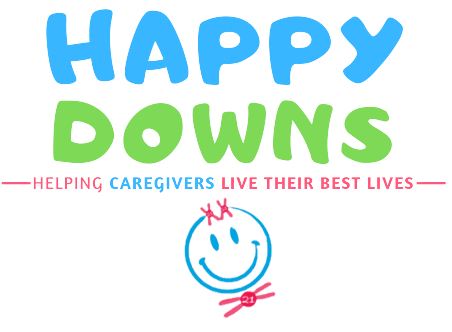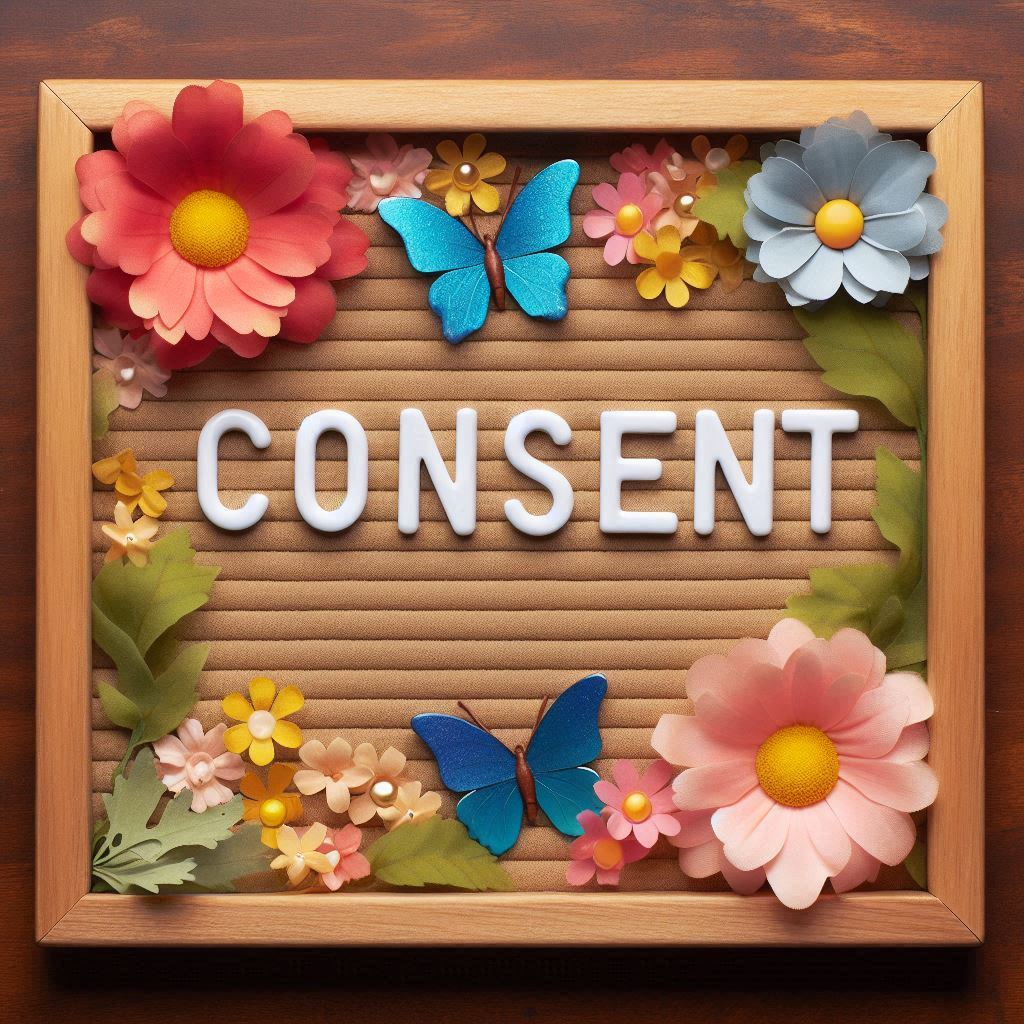Did you know that someone with Down Syndrome (DS) can be a sexual offender or dare I say a sexual predator? Oh yes! We never really think about that, do we? We tend to look at this whole issue of sexual abuse from the viewpoint of our kids being abused, but we never think of them as the abuser.
I know some of you guys are thinking “What the H-E-double hockey sticks” is she talking about? That’s absurd!”. Actually, what’s truly absurd is wanting society to accept our loved ones and treat them “just like everyone else” but then we turn around and treat our loved ones differently. If we truly believe our kids are just like everyone else…if we believe that DS does not take away from the fact that they are humans…then why on Gods’ green earth do we think that our loved ones are incapable of things human beings are capable of?
What I am saying here guys is that if we do not teach our loved ones the importance of boundaries and personal space then they can end up crossing boundaries that they should not and end up invading people’s personal space. This is a very serious matter guys…one that we cannot ignore.
Educate Your Loved Ones About Social Etiquette
Some of us caregivers, with the best of intentions I might add, are on a sure-fire course of coddling our loved ones to death. We are guilty of forgetting that it is only an extra chromosome that differentiates them and that does not eliminate the need for educating our loved ones about social etiquette. We tend to “let things slide”, laugh at inappropriate behavior and make excuses for this behavior. When we do this, are we helping our loved ones or doing more harm than good?
If we do not teach our loved ones the importance of boundaries and personal space, how will they learn to respect other people’s feelings, how will they learn to exercise self-control, how will they truly understand the well-known adage of “no means no”?
Down Syndrome is not and will never be an excuse for inappropriate behavior. Why can’t we have the same behavioral expectations for our child with DS that we have for the so called “normal” child?
Social Etiquette & Sexual Offenders
Let’s pause for a moment and think about this. What are some of the possible reasons why our loved ones would find themselves in a position where they are inappropriately touching someone else?
- The abused becomes the abuser. This is what happened to them, this is how they were introduced to sex, they told no-one or they got no counselling or any kind of help to deal with it and so they end up continuing the cycle.
Please remember that not all children grow up in a loving home. A lot of persons with DS, just like “normal” people, endure years of all sorts of abuse from even their own families. If the “normal” people can’t deal with all the pain and suffering they’ve been through, why do you think the person with DS is going to miraculously find a way to get rid of the anger and self-hate that comes with abuse? A lot persons out there, disabled are not, who are mean and hurtful are a result of the hurt that’s inside of them.
- No-one taught them the importance of boundaries and personal space, thus they do not understand what is acceptable social behaviour.
There are persons out there who have been abused by persons with DS but you will most likely never hear them speak of it, as apart from the obvious shame and humiliation, they may find it difficult to comprehend how someone with a disability, someone they never dreamed could harm anyone, could end up hurting them so much.
They may even feel guilty of getting the “disabled person” in trouble and thus decide to keep quiet. As caregivers, we must ensure that our loved ones are taught the importance of boundaries and personal space and we must hold them accountable for inappropriate behaviour.
Tips for Teaching Boundaries and Personal Space
Learning to respect someone’s personal space helps to protect your loved one as much as it helps to prevent them from hurting someone.
Tip#1 – Patience is a virtue
You know our loved ones tend to have short attention spans, which means repetition, repetition, repetition. I have to constantly remind my sister that I do not like to be kissed (you know our loved ones love giving kisses and hugs). She now tries to bargain with me and proceeds to ask if she can give me a hug instead.
Tip#2 – Be consistent
Our kids tend to love routine and dislike change, so if we are inconsistent we can confuse and frustrate them. For example, I’ve always reminded my sister that some things, like changing her clothes, are to be done in private, which naturally would be in her room or the bathroom. Sometimes, however, I have to remind her to ensure that the bedroom windows are closed just in case a neighbor walks by at an inopportune moment. I had to repeatedly do this and now I get chased out of the room whenever she needs her “privacy”.
Tip#3 – Positive reinforcement
When we see our loved ones respecting other people’s personal space, we should comment and let them know we are proud of them. I remember one day my sister and I were out. I saw a friend of mine and introduced him to my sister, at which time she turned to me and asked if it was okay to give him a hug. I then turned to him and asked his permission and he said yes. It was only at that time that I told her that she could go ahead. After my friend left, I told my sister how proud I was of her for remembering to ask permission.
Lessons we ALL must learn
Guys, I know this is a hard thing to think about, much less discuss. The point I am trying to bring across is that it is only an extra chromosome that differentiates our loved ones and so they really are more similar than different to everyone else. Therefore, we have to treat them as such. Teach them what you would teach your “abled” child.
Respect for others. Manners. Boundaries. It is never too late to start teaching our loved ones these things. We ALL need to know these “social rules”, as it will help our loved one not to invade someone’s personal space and also help them to know when someone is “crossing the line” with them and therefore tell that person to get back in line or seek help from us the caregivers who will gladly get that person back in line for them. We are all social beings and thus we must learn to properly interact with each other.
What has been your strategy over the years for teaching your loved one the social “Dos & Don’ts”? What hurdles are you now trying to get over? Let’s start a discussion!







This is a very important post and your make a truly valid point when you talk about ‘special kids’ who are often spoilt or able to get away with murder.
It is truly the parent’s fault that the child has not learnt the etiquette that every child should be taught by their parents or guardians.
I liken it to our two young dogs. One is particularly cute, pretty and cuddly and he is the one everyone wants to stroke and pick up. Hence, it didn’t take long before he got ideas above his station and we had to bring him into line. It wasn’t his fault, it was ours. Now he has to toe the line in all aspects and has become a cute, cuddly and pretty dog who has good manners and is respectful.
Thanks for this post, I sincerely hope those parents that have special DS kids will take notice of its content which is truly important and to the point. Great stuff! Ches
Hi Ches, indeed as parents it is our duty to ensure that our kids… whether they have a disability or not…are taught how to conduct themselves properly when interacting with others. I’m glad you appreciated this post. Feel free to stop by HappyDowns whenever you want. Take care.
Hi Alicia,
My son is 3 years older than his little sister. I constantly have to remind him about the importance of boundaries with his sibling.
When they were smaller, he loved having his little sister listen to him intently and playing games with him for hours. Now, she is starting puberty and is more interested to hang out with her girlfriends than with him. He has a harder time accepting this new phase in her life, as he no longer is the great big brother in her eyes.. he’s simply her brother.
He tries to bribe her (to no avail!) to come play video games, board games, etc… with him – but nowadays, she’s not as much interested to hang out with him. I remind him to respect her new boundaries as she no longer is the little kid who used to follow him everywhere he went. My daughter is growing up, and her interests have changed. I repeat myself so often with my son to respect her as an individual instead of teasing her and bribing her constantly.
You’re right, Alicia. This topic on social boundaries and personal space is important to teach to ALL kids! As parents, we need to instil these life-long values to our children. Thanks for your great post!
Carole
Hi Carole,
I can imagine how your son feels…it kinda crushes your feelings when your younger sibling no longer adores you (like you’re the best thing in life)…I get it. Just remind him that she still adores him, she will just show it in other ways now, as she gets older. Nothing will ever change the fact that he’s her big brother and she will love him no matter how old she gets or how many friends she has.
Whao, what a touching article. I have never really thought about people with DS this way ever before. I want to thank you for doing a well thought out job on this article. Well done.
I will from hence try to imbibe all the tip you gave here, like trying to correct them and not give excuses for them or their bad behaviour. And also be patient with them to adjust because of their attention span.
Hi Anuoluwapo,
I am very happy to hear that you found the tips useful. I hope you will see good results after implementing them.
Cheers!
This was a very intresting read. I feel that many parents should see this and I will make sure that it happens. By sharing this post. These kind of things aren’t talked about enough nowadays. I’m glad we still have people out here that aren’t afraid to address these issues. Thank you so much.
Hi James,
Thank you for taking the time to visit HappyDowns and reading this post. I am very happy to know that persons still see the importance of boundaries and personal space. Thank you so much for sharing this post!
Cheers!
Your article is very useful for parents who have a special need child.
Setting boundaries and personal space are very for all children with special needs. My son who has autism likes to touch babies because he finds them cute. I told him not to touch babies because their skin is delicate and that he might hurt them. I need to teach him about asking permission first to the parent of the baby if he could gently touch or stroke the baby’s arms. I have to demonstrate this to him so that he knows what gentle touch or stroke means.
Hi Deljar,
Your son is very lucky to have you. Listen, I think babies are cute too and so I understand him wanting to touch them. I am sure as you take the time to demonstrate to him how to go about this the right way then he will catch on and the parents of those babies will be better off for having met and interacted with your son. Keep me updated and let me know how it goes.
Cheers!
Thank you for your interesting article, I never really even thought of that. I do agree with you on the importance of boundaries and personal space being an important teaching point for all children, and I can see why someone may overlook things because of a disability. Thank you for such a great website, I think it a great place to look for guidance in raising a child with down’s syndrome.
Take Care,
Heather
Hi Heather,
Thank you for your encouraging words! I am happy we got you to think about things from a different persepctive. I do hope families will see HappyDowns as a place where they can get the help they need.
Take care!